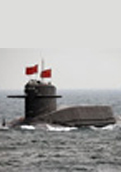Permanent Chairman Chiefs of Staff Committee: Should the appointment be delayed further?
Though the general elections are due this year, the need of the hour is to build a political consensus on the issue without further delay. It will be to the credit of the government if it is able to generate political consensus and appoint a Permanent Chairman CoSC or CDS.
- Vijai Singh Rana
- January 02, 2014










